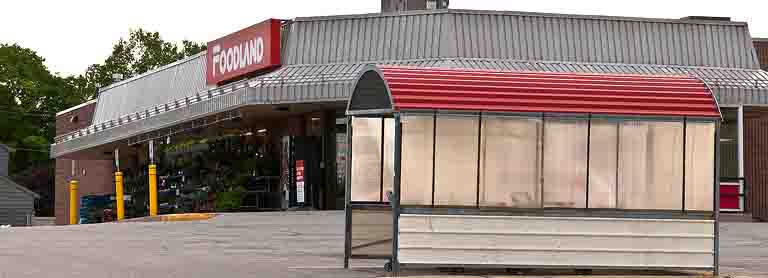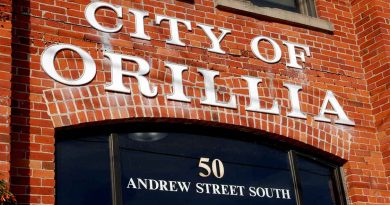Local Government And Economic Recovery
By John Swartz
The Emergency Recovery Task Force, which reports to the Emergency Management Committee, is charged with finding out from the community where the gaps are which need to be filled so the local economy can come back to life.
There are many Ontario and National programs, but not all businesses qualify, or have needs addressed. This doesn’t mean the municipality can automatically step in and solve issues. Municipalities cannot give financial aid directly to any business. They can fund a program, set requirements, and take applications for grants or loans, the difference is targeting a sector or class of business rather than just one or two businesses.
The Downtown Tomorrow Community Improvement Plan (DTCIP) works this way. Businesses apply for a type of grant. Any business can apply, but they must demonstrate the need and viability of their business in order to get a grant.
![]()



The first step for the task force was to survey the community in the last weeks of April. They organized consulted 13 focus groups by phone and video conference, asked what each felt were the challenges and how the participants planned to meet them. They also wanted to know what each group and participant thought the City could do to help with recovery.
Following is a summary by sector of what the task force found
Commercial Landlords

The group concern was obviously tenants being able to pay rent. They indicated 30% of tenants are behind in payments. Landlords in turn have mortgages to pay, more established landlords will have an easier time than newest landlords who are likely carrying bigger mortgages with less equity.
They are concerned even if they defer rent payments for a few months, reduced economic activity when things open again won’t be enough to help tenants catch up.
They would like the City to waive or defer some or all of the property taxes, possibly set up a repayment over time if deferred, rather than set a due date for the total sometime in the future. They believe the City’s list of (capital) projects needs to be pared back for a while so that money can be repurposed.
They would like a case by case assessment for any grants which may be created, and would like help having MPAC reassess property values because they anticipate market value will drop, but hey will be paying taxes on a higher value..
Residential Landlords

While no new evictions are contemplated, there is concern the eviction process has been stopped and landlords anticipate a backlog once things improve. Landlords are questioning whether to rent to students because of safety concerns re: COVID restrictions.
They would like property taxes deferred until January 1, 2021 . They are unsure what Lakehead University and Georgian College will be doing in the fall and what student needs will be. There is concern that those with one, or few properties, do not have enough information how to navigate through the issues presented at this time.
Grocery Stores

This group was hardest to consult because grocery stores remained open, but managers too busy changing the way they operate and were still working out those details during the survey. A common theme was staffing. It takes more people to manage inside operations, and more to be able to have curbside, or delivery service. The new model also means fewer customers each day, while expenses are rising. Because of the number of staff and customers, all were concerned about keeping staff safe from infection.
Hotels

Participants ranged from chains to independently owned and operated motels. Most have laid off staff because of lower occupancies. Food services have been closed. Only business customers were being booked during the early stages of stay at home practice and the only customers were construction workers. There have been many room cancellations through to June.
They are hoping wage subsidies will help. They would like the City to have a protocol to direct their business contacts who may be coming here on business to local accommodation businesses.
They also think it is necessary for better coordination with the tourism sector to promote travel to the area when those restrictions are lifted. (The City is already working on this aspect with a $32,000 marketing program).
Manufacturing

The consensus was loan programs only prolong the pain. While not stopped, work orders are down. They said a tax holiday of 3 months would help smaller businesses. For them, cash flow was the main issue. Many employers were in a growing phase as the epidemic hit, which has been halted, and are wondering how long it may take to return to levels of activity where expansion (already planned) can continue.
The staff shortage present before the pandemic is worse now. Some have used periodic voluntary layoffs or are instituting job sharing within their operations. Of prime concern, and the most effort expended, is keeping staff safe and minimizing personal contact while at work. They are expecting a 2 to 3 year recovery period.
Most are expecting to have to ride out the downturn without much aid. They are being creative mixing layoffs, job sharing and unemployment benefits to retain current staff. They believe federal programs need to be re-examined focusing on keeping people working, though it was noted they are skeptical of government programs.
Marine Industry

Many marina operators participated along with representatives from Parks Canada and Ontario Boating. Marinas cannot do an instant start once restrictions are lifted. They are worried an entire boating season will be lost (launch facilities have since been reopened, but just at the window marina operators were concerned would slip by). They are concerned about refunds for slip fees already collected which may be cancelled.
While they may be able to put boats in the water, they may not be able to open other facilities (swimming pools, playgrounds, washrooms, etc) they offer, and in order to minimize personal contact will have to teach boaters some of the services they offer (refueling, filling water, emptying wastewater, etc.).
Since the consultation, and as of today, June 1, the Port of Orillia is open for business.
Non-Profit Groups
This group included representatives from the usual suspects in community service as well as sporting groups. The number one worry is fundraising efforts are at a standstill. In many cases fundraising is tied to an event or tournament. Once restrictions lift, the worry is too many groups will resume fundraising at the same time and target the same donor groups in a compact time frame instead of having a full year which would otherwise not create a conflict.
Most are hoping there will be some form of user fee subsidy from the City to hold their events. They would also like the ability to use municipal online platforms for messaging.
Many social service agencies operate on a face to face basis, which even as restrictions lift will still likely involve some form of physical distancing. Many groups have shifted to working online from home, though service delivery is not always possible because either the face to face is necessary, or clients don’t have computers. Many groups are dipping into reserves. Fixed costs don not stop.
Restaurants

More than 20 participated, some represented several restaurants. There is a general concern about what the new rules are going to be in order to operate their businesses. Additionally, without that information they can’t plan for expenses.
Limited seating may mean some restaurants are economically not viable to operate. They are also concerned about the expectation of the kind of service they were able to give, and the expectation of what customers will want with new rules. Fixed costs (rent, taxes) won’t be any different, though revenues are going to be lower. Offering take out only is not economically viable for many restaurants.
Due to the nature of customer/staff relations, staying safe is of concern, and many are finding getting staff is a problem. Most want some kind of rent and loan relief. Promotion tell customers some are open or have take out available is hard to do, competition for screen space online is dominated by those not in businesses here, or are corporate chains.
Small / Specialty Businesses
Many do not qualify for government assistance (CERB, etc.), especially newer businesses. There is no room to take on more debt. The conundrum is, there is too much to incorporate with new rules, not enough business to justify the cost, and too much work for those on hand.
The preference is for curbside delivery, rather than to the customer’s door delivery because it is less costly to the businesses (since the consultation, curbside delivery for some businesses has been allowed and a central downtown pickup/delivery has started).
Many would like property tax relief for home based businesses, and for the downtown Business Improvement Area. Sole proprietors feel lost figuring out if and what government programs they may qualify for. They would also like a central clearinghouse of sorts regarding any new regulations and rules for doing business – someone with the right answers.
Ideas offered were for a community e-commerce program businesses could use (this is being worked on), free legal advice since most small businesses didn’t budget for the kind of increased need, having a centralized source for PPE small businesses can utilize, and a marketing program to encourage people to shop local (this started today).
The diversity of this group presented many issues and challenges unique to their lines of business. Those who were able to stay open had reduced staff, increased time spent, and are not able to cope with the paperwork required to access government programs.
Most are resigned revenue will drop, in some cases by as much as 40%, but feel left out with government aid programs. Many would like to have a subsidy for additional expense related to COVID safety demands. There is concern that some businesses are not abiding by rules and tilting the playing field others are trying to stay on
Health and Wellness Businesses
The biggest concern is most businesses don’t have the space to operate at physical distancing rules. Going online does not replace income, and many are hands on types of businesses (e.g. chiropractors). They too have concerns about getting PPE in order to stay in business.
Generally this sector is experiencing 75% revenue reduction, fixed costs are the same; they would like some kind of rent relief. The irony is, despite the types of business in this sector, many are not considered essential and could not operate until recently. Even as gradual reopening is happening, by the very nature of most of the businesses in this sector they have costly requirements to meet in order to resume business.
One expensive cost where relief is sought is professional fees and insurance for the periods they were not allowed to operate.
Financial Sector
This area seems to be one where The City will not be wasting any concern. Only two banks and one other lender participated and none wanted to go on record. However, notes taken show there was, at the time, little communication from head offices to local branches regarding direction or possible reopen scenarios. The task force came away believing the general recovery would take 18 to 24 months.
There was a suggestion noted banks want government to cut back substantially on costs and pass the saving on to business in tax reductions and forgiveness (of debt).
![]()



Conclusion
Task force chair, Ted Emond, told SUNonline/Orillia, as of the moment there appears to be little need of the full $1 million fund set aside by council for economic recovery because the province and feds have along the way created a number of financial aid packages.
If anything, the City’s role may be as a facilitator between sectors, individual businesses and higher levels of government to get funds flowing, or fill the gaps which will emerge. There may be costs to that, but it is unlikely grants will need to be made.
The main reason for realizing outright cash payments may not be needed is municipalities are handcuffed by provincial legislation against giving money to businesses – the City had to get approval from the province to set up the DTCIP. Furthermore, regarding the overwhelming response from all sectors for property tax relief is also out of the City’s hands. While taxpayers have been given a holiday on penalties for late payment until the end of June (which effectively means people don’t have to pay their first installment until then), the City cannot decide to do anything for, say, the commercial class of the tax regime. They can do something, but it has to apply to all taxpayers, so the idea of cancelling, or deferring taxes to retail stores applies to residences as well.
Emond said so far the City has done a number of things they can control, like making transit and parking free, and it is likely some things can continue for a time, and other areas for relief will occur. At best, how to recover for local businesses is a moving target; the only bright side is in knowing the direction things need to go.
Emond said the committee is currently doing a second round of consultations and winnowing down to the things the City can actually do.
(Photos by Swartz – SUNonline/Orillia)




